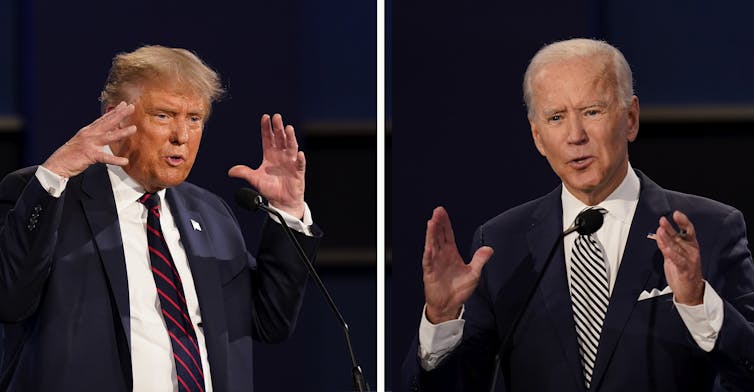Often in error but still seductive
W. Joseph Campbell, American University School of Communication |
| Polls showed Joe Biden, right, holding double-digit leads over Donald Trump, left, in the run-up to the 2020 election, but he won election by only 4.5 percentage points. AP Photo/Patrick Semansky, File |
Why is that? What explains polling’s abiding appeal despite its performance record?
The reasons go beyond facile analogies that election polls are akin to weather forecasts in offering a fluid, if sometimes contradictory, sense of what lies ahead.
Polls and poll-based forecasts are not always in error, as I noted in my 2020 book, “Lost in a Gallup: Polling Failure in U.S. Presidential Elections.” Their enduring appeal rests in part in offering a sense of data-based certainty that can be irresistible, especially to journalists who tend to value precision in a field awash with ambiguity.
It is hardly surprising, then, that news organizations also are polling operations. Ties to election polling live deep in the media’s DNA.










